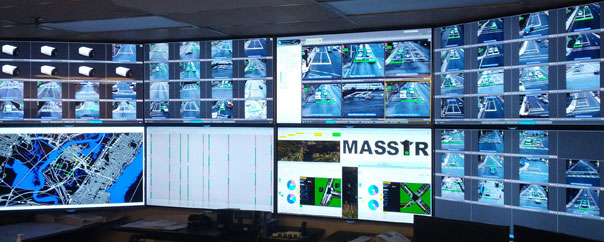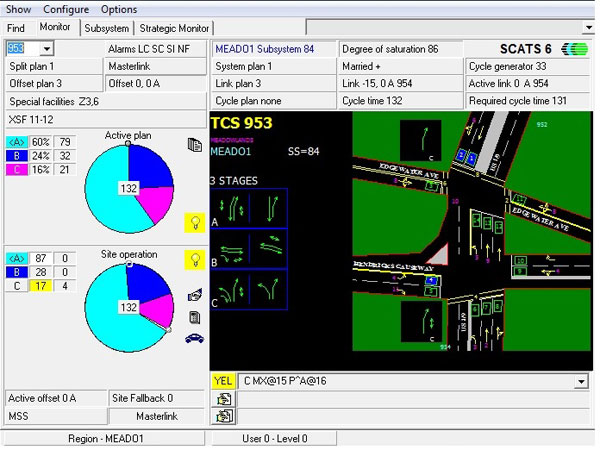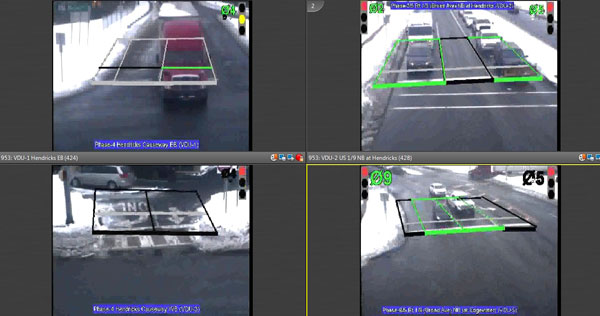
The NJSEA MASSTR Project reduces roadway congestion, delays, travel time, fuel consumption, and airborne emissions in the Meadowlands region through advanced, proven, and cost-effective technologies without sprawl-inducing roadway widening, significant infrastructure spending, or adding additional right-of-way.
The project incorporates 126 traffic signals into a self-adaptive network. A reduction in congestion is accomplished by adjusting the signal timings based upon the flow of traffic rather than utilizing fixed or actuated timings. Signals along multi-jurisdictional boundaries are continuously coordinated for optimal operation. Traffic conditions and signal operations are monitored and controlled in real-time at the NJSEA Traffic Management Center.

Monitoring sites through SCATS – Adaptive traffic signal control system

Video-based vehicle detection system
The MASSTR project was an ideal opportunity to update existing outdated traffic control mechanisms and integrate them into an advanced intelligent transportation system that provides for sustainable transportation improvements and significant regional benefits within a complex region. Area businesses and residents will continuously benefit from a reduction in signal delays, travel time, fuel consumption, and airborne emissions.
All project signals utilize advanced components including adaptive traffic signal control software, wireless and fiber-optic communications, and vehicle detection devices.
Installation of the system involved adding advanced traffic signal control components to existing signal cabinets; mounting vehicle detection cameras, radios, and antennas on traffic signal poles; and installation of various wiring.
The key function of the vehicle detection cameras is to identify real-time traffic demands. It is noted that the low resolution video data from the vehicle detection cameras is overwritten automatically every two weeks.
The agency was awarded a highly competitive $10 million Tiger 2 grant from the U.S. Department of Transportation to install the system on 123 traffic signals in the Meadowlands region. The Meadowlands District Transportation Planning District Fund provided the remaining $2.5 million in matching funds.
The intelligent transportation system serves more than 3 million vehicles each day. The project is estimated to reduce vehicle delays by more than 1.2 million hours per year, gasoline consumption by more than 1.2 million gallons per year and greenhouse gas emissions by more than 11,000 tons per year.